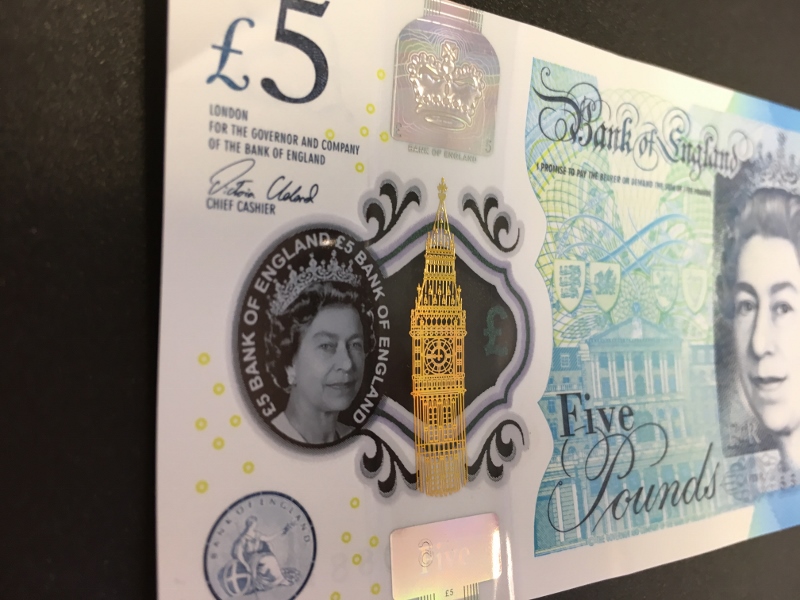
The new plastic notes, featuring novelist Jane Austen, will start appearing in people’s pockets in the coming weeks after one billion were printed.
Like the £5 note already in circulation featuring Sir Winston Churchill, the new £10 banknote featuring Pride And Prejudice author Austen is made from polymer.
They’re expected to last around two-and-a-half times longer than the paper versions.
The existing paper notes, featuring Charles Darwin, are still legal tender until spring 2018. They’ll be phased out until then, but can still be spent.
The exact date will be announced at least three months in advance.
A new £20 note featuring artist JMW Turner will follow in 2020.
The Bank of England worked with the Royal National Institute of Blind People (RNIB) to build accessibility into the design of the new polymer note.
It is the first Bank of England note that contains a tactile feature to assist blind and partially-sighted users.
The tenner has two clusters of raised dots at the top left corner of the note to allow blind or partially sighted people to identify the value of the note easily.
The Bank of England will also include these features on the new polymer £20, due to be released in 2020.
This year marks the 200th anniversary of Jane Austen’s death.
Born on December 16 1775, in Steventon, Hampshire, Austen started to write short, comic stories in childhood, and her first works were published anonymously.
While her work gave her little personal fame during her lifetime, Austen’s novels started appearing on university reading lists around the start of the 20th century, with many films later exploring the themes of her writing.
Austen died on 18th July 1817.

Victoria Cleland, the Bank’s chief cashier, said: “It is wonderful to see the inspirational author Jane Austen celebrated on the new £10, and even more poignant being launched during the 200th anniversary of her death.
“I am grateful to the cash industry for their support in bringing the cleaner, safer, stronger notes to the public.”
Austen’s inclusion on the note is the result of lobbying from feminist campaigner Caroline Criado-Perez.
She threatened to take the Bank to court over discrimination when the withdrawal of the Elizabeth Frey fiver left The Queen as the only woman on UK banknotes.
After a petition and social media campaign, the bank opted for Austen.
Criado-Perez said she’d be donating her first Austen tenner to a local women’s shelter, having received death and rape threats and disgusting abuse online throughout her campaign.
The transition to polymer has sparked controversy after the Bank confirmed that an “extremely small amount” of tallow, or animal fat, was used to produce polymer pellets, which were part of the production process for creating the notes.
In August, following a public consultation, the Bank said that after “careful and serious consideration”, there would be no change to the composition of polymer used for future banknotes.
It said the only viable alternative was palm oil, but this raised questions about environmental sustainability and value for money.
















